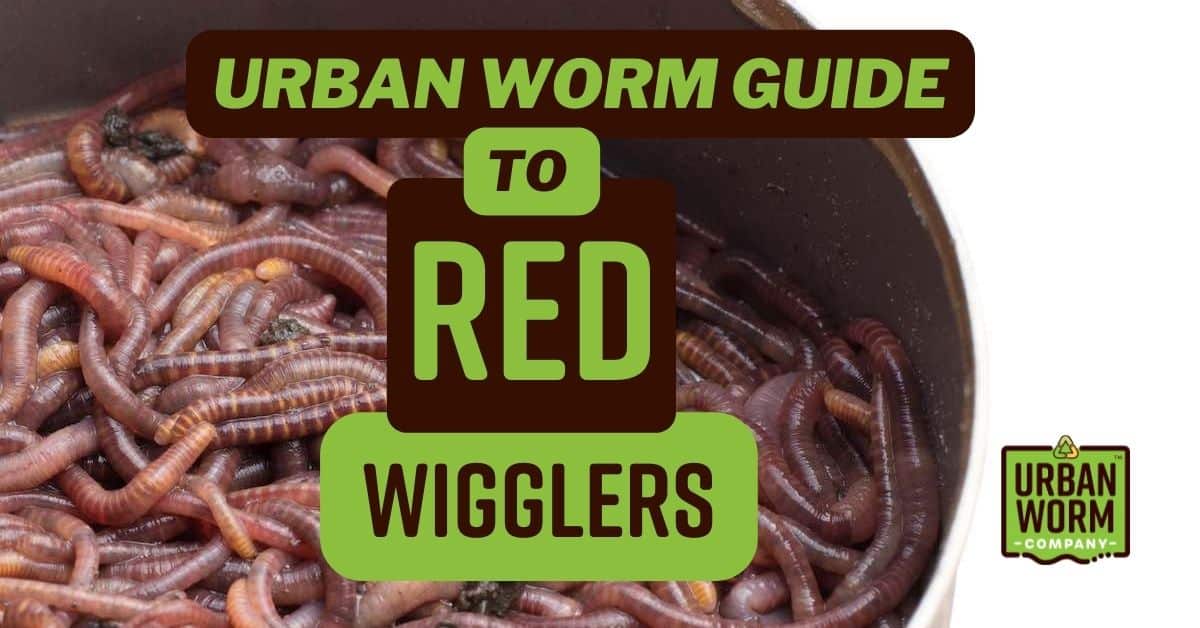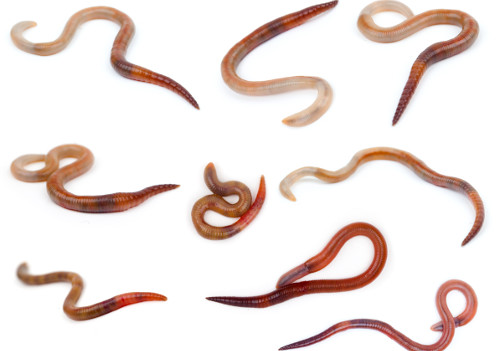Red Wiggler Worms available for sale - Sustainable Waste Monitoring Solution
Red Wiggler Worms available for sale - Sustainable Waste Monitoring Solution
Blog Article
Red Wiggler Worms Demystified: Unlocking the Keys of Vermiculture for Greener Living and Nutrient-Rich Soil
In the realm of lasting methods for improving soil top quality and promoting eco-conscious living, red wiggler worms play a crucial yet typically forgotten role. Red Wiggler Worms. Understanding the ins and outs of caring for these worms, optimizing their atmosphere, and using their castings can lead to a greener way of living and healthier dirt for plants to prosper.
The Duty of Red Wiggler Worms
Red Wiggler worms play an important function in composting systems by successfully breaking down natural matter right into nutrient-rich spreadings. These voracious eaters take in a selection of organic materials, such as cooking area scraps, yard waste, and paper products. As they feed, the worms' digestive system processes break down the raw material into a penalty, dark, and nutrient-dense product referred to as worm castings or vermicompost.
The spreadings generated by Red Wiggler worms are highly helpful for dirt health and plant growth. They are rich in vital nutrients like phosphorus, nitrogen, and potassium, which are essential for sustaining healthy and balanced plant growth. Additionally, worm castings contain useful microorganisms and enzymes that aid boost dirt framework, rise water retention, and enhance nutrient uptake by plants.
Benefits of Vermicomposting

It boosts soil framework, improves soil aeration, and boosts soil wetness retention. Vermicompost also enhances the soil with crucial nutrients like potassium, nitrogen, and phosphorus, promoting plant growth and overall dirt fertility.
In addition, vermicomposting assistances sustainable horticulture practices by offering a chemical-free and natural option to artificial plant foods. Red Wiggler Worms. This ecologically friendly approach not only enhances the dirt but also helps reduce reliance on unsafe chemicals, promoting a greener and a lot more sustainable method of horticulture
Establishing a Worm Container
When developing a worm container for vermicomposting, proper arrangement is important to ensure the success of the composting process. The very first step in setting up a worm container is selecting an appropriate container. This can be a plastic container or wood box that gives enough area for the worms to move and has proper drain openings to stop waterlogging. Next, a bed linens material such as shredded newspaper, cardboard, or coconut coir need to be included in the bin. This bed linens gives a comfy atmosphere for the worms and assists preserve wetness degrees.
After adding the bed linen, present the red wiggler worms to the container. It is suggested to start with a little number of worms and progressively enhance as they multiply. The worms need to after that be provided with food scraps such as vegetables and fruit peels, coffee grounds, and eggshells. It is necessary to stay clear of adding meat, dairy, oily, or salted foods to stop attracting insects and creating undesirable odors.
Consistently keep an eye on the wetness degrees and temperature in the worm container to make sure optimum problems for the worms. With appropriate configuration and upkeep, the worm container will successfully transform natural waste into nutrient-rich garden compost for your plants and garden.
Collecting Worm Castings
To efficiently gather nutrient-rich worm spreadings from your vermicomposting system, an organized harvesting technique is important. When it comes time to harvest the worm castings, there are a couple of vital steps to comply with to guarantee a successful procedure.

Troubleshooting Common Issues
Identifying and attending to next page typical difficulties that may emerge during the vermicomposting process is crucial for maintaining a efficient and healthy and balanced worm bin. One usual problem that vermicomposters experience is overfeeding. Adding excess food scraps can bring about an accumulation of moisture and acidity in the worm bin, possibly hurting the worms. To prevent this, feed the worms in moderation, making sure that the food scraps are sufficiently broken down before including much more. One more concern is undesirable smells rising from the worm bin. Foul smells indicate anaerobic conditions, commonly brought on by overwatering or inadequate air flow. To fix this, change the dampness degrees by adding completely dry bed linens materials like shredded newspaper or cardboard and rise oygenation by turning the bed linen on a regular basis.
Furthermore, if the worm population is decreasing or the worms show up undesirable, it might be as a result of environmental stressors such as severe temperature levels or pH degrees. Keeping an eye on these factors and making necessary adjustments is important for the wellness of the worms. By fixing these typical concerns without delay, vermicomposters can ensure a successful and smooth vermicomposting process while keeping a prospering worm populace.

Conclusion
Finally, red wiggler worms play an essential function in vermiculture by breaking down natural matter right into nutrient-rich soil. The advantages of vermiculture include greener living and improved soil top quality. Setting up a worm bin is vital for successful vermiculture, and gathering worm castings supplies important compost for horticulture. By understanding and repairing common problems, people can open the secrets of vermiculture for lasting living and healthier dirt.
As they feed, the worms' digestion procedures damage down the organic issue into a fine, dark, and nutrient-dense product home recognized as worm castings or vermicompost.
The spreadings produced by Red Wiggler worms are highly helpful for dirt health and plant growth. Including excess food scraps can lead to an accumulation of wetness and acidity in the worm container, possibly harming the worms.Furthermore, if the worm populace is declining or the worms show up unhealthy, it can be due to ecological stress factors such as severe temperature levels or pH degrees. Establishing up a worm bin is crucial for successful vermiculture, and collecting worm castings gives useful garden compost for horticulture.
Report this page